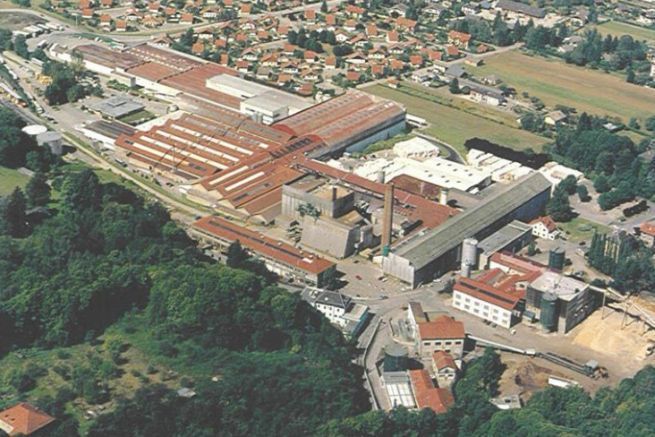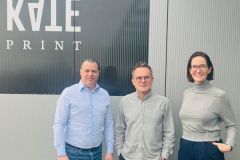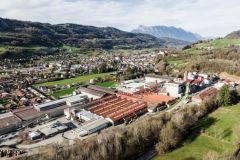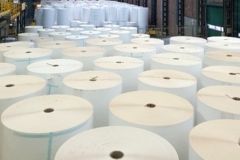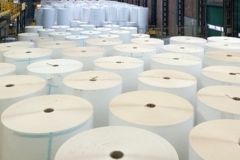Despite five company headquarters and 17 industrial sites in France, Mutares is a discreet player in the French industrial landscape. The Munich-based German group - which in early June bought the Lapeyre DIY chain from Saint-Gobain - owns several companies in the paperboard sector, including, since May 1, the La Rochette paper mill, located in Valgelon-La Rochette in Savoie.
We asked Pierre-Yves Guégan, the new president of the paper mill which is now called La Rochette Cartonboard to explain us who is the Mutares group.
GraphiLine: Mutares presents itself as an investment holding. What does this mean in concrete terms? What is the group's acquisition approach?
Pierre-Yves Guégan: Mutares is an industrial investment holding, rather than an "investment fund". In general in finance, we often have "private equity funds" that have a holding period of 4 to 5 years. This is not a principle applicable to Mutares: no pension fund or anything else is behind it. There is no pressure on a predetermined holding time even before the acquisition is finalized. Moreover, Mutares' portfolio includes companies that have been there since 2009.
Mutares, which has a turnover of 2.5 billion euros and 15,000 employees, has a capital composed of the stock exchange listing (Frankfurt) and the capital held by Mutares' founder, Robin Laik.
What is your role within Mutares and La Rochette?
I am part of the operational teams of Mutares: my role is to take part in the management of the company once the acquisition has been completed as required, here as president. I have already applied this role in several companies: before La Rochette, I was the CEO of SFC, an automotive supplier, and the manager of Norsilk, which is a planing mill located in Normandy.
Mutares has internalized its fields of expertise. The group hardly ever calls upon external contributors. Since May 1st, I consider myself as belonging to La Rochette Cartonboard and not to Mutares. I interact with Mutares like a manager with his shareholder. However, I have the luxury of being able to rely on a team of more than 100 experts and this is the principle of operation of Mutares. For example, when I had a logistic problem, I was able to call upon a logistic expert. In two months, he deployed an action plan and improved this point.
Which companies are of interest to Mutares?
Mutares always invests in an industrial dominance which is divided into three sectors: automotive, engineering and goods and services. La Rochette is part of this last category.
What is the history of Mutares in the paperboard industry ?
Cenpa, which manufactures tubeboard in the Lower Rhine, has been owned by Mutares since 2015. Mutares also owned the German paper manufacturer Zanders (from 2015 until the end of 2018. Zanders was liquidated on April 30, 2021 and since May the French paper mill La Rochette.
How does Mutares work after acquiring a company?
Mutares develops companies in two ways. Firstly, people from Mutares come to work in the company to develop it from the inside by implementing action plans to improve the results. The second axis is a development by external growth in order to make the company even more coherent with the customers and markets.
So the paperboard segment in France is buoyant?
Yes, there is clearly room for development in the paper and cardboard sector. There is a particular appetite for paper and cardboard as opposed to plastic. You just have to look at the market. For example, in the construction industry, certain rules will be put in place - in the short term - to impose the presence of wood. In packaging, cardboard/paper-based packaging is the preferred material, not plastic.
We clearly have a growing business area. So, yes Mutares has an appetite for this segment.
Moreover, La Rochette demonstrates this: the results are up sharply, especially in the last two years in 2019 and 2020 (partly thanks to better internal management and partly to the market itself).
Is Mutares interested in other French sites in the paper and board sector?
Yes! But I won't say more.
